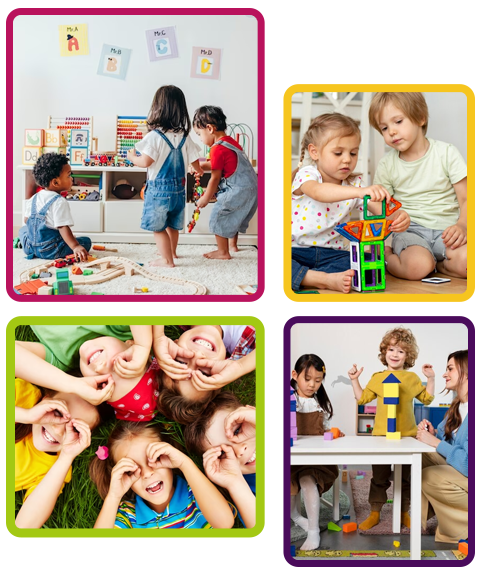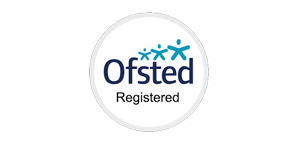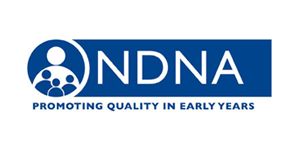Caring for Babies and Toddlers
At Happy Little Angels, we care for babies and toddler under the age of two as well as pre-school children.
We ensure their health, safety, and well-being through the following:
- always Implementing the EYFS requirements and caring for babies and toddlers in a separate base room with a maximum number of children with a minimum ratio of 1:4.
- Allocating each baby and toddler a key person who works in partnership with their parent to meet their individual needs and routines.
- Having well qualified staff that understand the needs of babies and toddlers, ensuring that at least half of the staff team caring for children under the age of two have undertaken specific training for working with babies.
- Ensuring babies and toddlers have opportunities to see and play with older children whilst at nursery.
- Toddlers transitioning to the older age groups or rooms when assessed as appropriate (see separate Transitions policy)
- Staff supervising all babies and toddlers and organising the environment to support both non-mobile and mobile babies and toddlers.
Environment
- The environment, equipment and resources are risk assessed and checked daily before the children access the rooms or area. This includes checking the stability of cots and areas around, low/highchairs and ensuring restraints on these, pushchairs and prams are intact and working.
- All doors are fitted with viewing panels and door finger-guards to prevent accidents.
- Outdoor shoes are removed or covered when entering the baby and toddler area(s). Staff remind parents and visitors to adhere to this procedure. Flooring is cleaned regularly.
- Sterilisers are washed out and cleaned daily.
- Large pieces of furniture are fixed to the walls to stop them falling on top of babies and young children.
- Play and learning is planned in line with children’s individual interests and the EYFS learning and development requirements.
Resources
- Care is taken to ensure that babies and toddlers do not have access to resources or activities containing small pieces, which may be swallowed or otherwise injure the child.
- Babies and toddlers are closely supervised during all activities.
- Resources and equipment that babies and young children have placed in their mouth are cleaned and/or sterilised after use.
- All resources are frequently cleaned.
- Soft furnishings are frequently cleaned.
- The use of resources that restrict babies’ movement such as baby walkers, pushchairs, jumparoos, etc will not be used on a regular basis because these can contribute to delayed physical development. We follow NHS guidelines which recommends that if these resources are to be used then it should be for no more than 20 minutes at a time.
Intimate Care
- Babies and toddlers have their nappies changed according to their individual needs and requirements by their key person, wherever possible. Checks are documented with the time and staff initials and information is shared with parents.
- When developmentally appropriate, we work closely with parents to sensitively support toilet training in a way that suits the individual needs of the child.
- Potties are washed and disinfected after every use. Changing mats are wiped with anti-bacterial cleanser before and after every nappy change.
- Staff ensure all the equipment is ready before babies and toddlers are placed on the changing mat.
- No child is ever left unattended during nappy changing time.
- Intimate care times are seen as opportunities for one-to-one interactions.
- Staff do not change nappies whilst pregnant until a risk assessment has been discussed and conducted. Students only change nappies with the support and close supervision of a qualified member of staff (see separate Student policy)
- Cameras, mobile phones and other equipment capable of recording images (Smartwatches, tablets etc) are not permitted in toilet and nappy changing areas.
- Nappy sacks and creams are not left in reach of babies and children.
- We always follow systems in place to ensure there is an adequate supply of clean bedding, towels, and spare clothes.
See separate Nappy changing policy and Respectful intimate care policy.
Sleep
- We follow the NHS guidance to reduce the risk of sudden infant death syndrome (SIDS)
- Each baby and toddler have labelled nursery bedding which is washed at least weekly and when necessary, this considers any allergies and irritation to soap powders and any individual needs. For example if a child prefers to sleep in a sleeping bag, we will ask parents to bring one from home.
- All cot mattresses and sleep mats meet necessary safety standards. We use a firm and flat mattress and waterproof mattress covers.
- Safe sleep guidance is always followed, babies are always laid to sleep on their back, with their feet touching the foot of the cot. Children under two years are not given pillows, cot bumpers or any soft furnishings to prevent risk of suffocation.
- We also share safe sleep advice with parents.
- We ensure that sheets or thin blankets come no higher than the baby's shoulders, to prevent them wriggling under the covers. We make sure the covers are securely tucked in so they cannot slip over the baby's head.
- Only sheets and blankets that are of good condition are used, any loose threads are removed.
- Cots are checked before use to ensure no items are within reach i.e. hanging over or beside the cot (fly nets, cables, cord blinds)
- Babies sleeping outside have cat/fly nets over their prams and we ensure we only use prams that lie flat for sleeping so babies and toddlers are supported.
- Sleeping children are supervised at all times and checks are completed every 10 minutes. This may increase to five minutes for younger babies and/or new babies. Checks are documented with the time and staff initials on the sleep check form and times are shared with parents.
See separate Sleep policy.
Bottles
- Feeding times are seen as an opportunity for bonding between practitioner and child and where possible babies are fed by their key person.
- Food and milk for babies is prepared in a separate kitchen/area within the kitchen which is specifically designated for this preparation. Handwashing is completed before preparation is undertaken.
- Bottles of formula milk are only made up as and when the child needs them. Following the Department of Health guidelines, we only use recently boiled water to make formula bottles (left for no longer than 30 minutes to cool). We do not use cooled boiled water that is reheated. They are then cooled to body temperature, which means they should feel warm or cool, but not hot. Bottles are tested with a sterilised thermometer to ensure they are an appropriate temperature for the child to drink safely.
- Bottles are only made following the instructions on the formula. If, during the making process, there are discrepancies, a new bottle will be made.
- All new staff will be shown the procedure, and only when competent and confident will they make them on their own. Students are fully supervised.
- Nursery bottles and teats are thoroughly cleaned with hot soapy water and sterilised after use (they are not washed in the dishwasher). They are replaced as and when required.
- Unwanted or left over contents of bottles are disposed of after two hours
- Babies are never left propped up or laid in a cot or a pram with bottles as it is both dangerous and inappropriate.
- A designated area is available for mothers who wish to breastfeed their babies or express milk.
- Labelled breast milk is stored in the fridge.
Mealtimes
- All low/highchairs used for feeding are fitted with restraints and these are always used. Children are never left unattended when eating or when in highchairs. Restraints are removed and washed weekly or as needed.
- Mealtimes are seen as social occasions and promote interactions. Staff always sit with babies and young children, interacting, promoting communication and social skills.
- All children are closely supervised whilst eating and if any choking incidents occur paediatric first aid will be administered.
- Babies and young children are encouraged to feed themselves with support, as required.
- We work together with parents regarding weaning and offer any support, as required.
Comforters and dummies
- We have a separate Use of dummies in nursery policy to promote communication and language development.
- If dummies are used, they are cleaned and sterilised. This also applies to dummies which have been dropped on the floor.
- All dummies are stored in separate labelled containers to ensure no cross-contamination occurs.
- Dummies are disposed of if they become damaged.
- Comforters including teddies and blankets are kept safe and provided at sleep times, or if the child becomes unsettled.
| This policy was adopted on | Signed on behalf of the nursery | Date for review |
|---|---|---|
| 20.10.2023 | N.S | 21.02.25 |

Enquiry Form

Happy Little Angels Day Nursery
1 The Croydon Flyover
Croydon, Surrey
CR0 1ER

Phone No:
020 8726 0510

E-mails:info@happylittleangels.co.uk

Website: www.happylittleangels.co.uk



